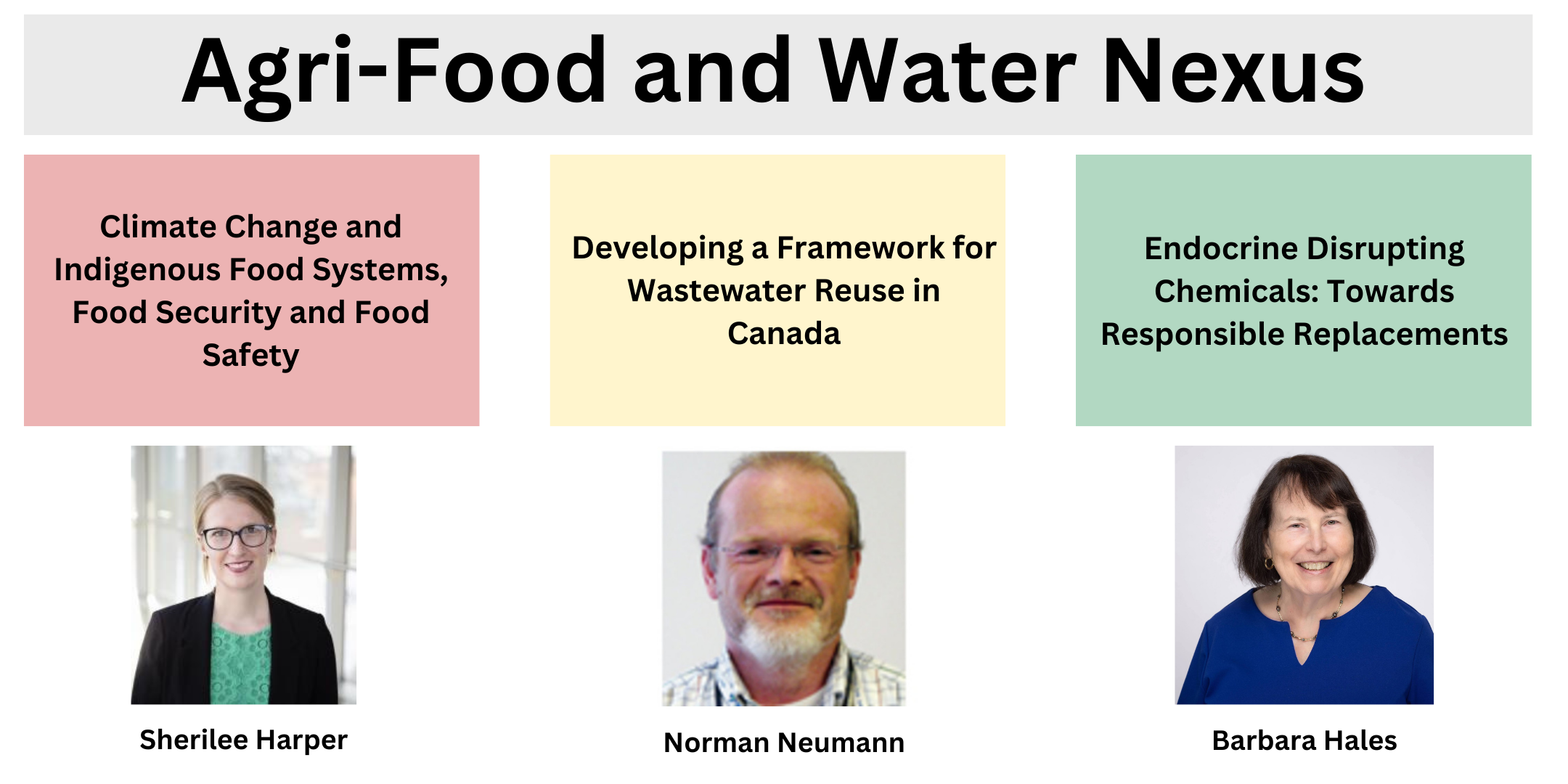- Location
- Zoom
- Series/Type
- CANUE Event, DLSPH Event, Faculty/Staff Event, Seminar
- Format
- Online
- Dates
- April 5, 2023 from 1:00pm to 2:30pm
Links
A changing climate will affect food through a range of effects on agriculture, livestock, water systems, and wildlife, which have implications for food security, foodborne disease, and malnutrition. For example, population growth, loss of environmental services and climate change are forcing communities to explore opportunities that treat municipal wastewater to allow its safe return for community uses or harvest rain/stormwater for various non-drinking water uses (all referred to here as wastewater reuse). As part of our everyday lives we are exposed to a wide variety of chemicals derived from consumer products, such as foam, electronic equipment and plastics, that enter our food and drinking water. Most of these chemicals are present at very low concentrations. The Canadian Institutes of Health Research funded three projects to consider the impact of the environment on agri-food, the food-water nexus and health. In this webinar, learn what the researchers discovered and what they plan to do next.
About the Speakers
Norman Neumann is a Professor in the School of Public Health at the University of Alberta. His research program focuses on development of novel approaches and tools for detecting, tracking and assessing human health risks associated with biological hazards in the environment (viruses, bacteria, protozoans, prions).
Barbara Hales is a James McGill Professor in the Department of Pharmacology and Therapeutics at McGill University.
Sherilee Harper is a Canada Research Chair in Climate Change and Health and an Associate Professor in the School of Public Health at the University of Alberta.
